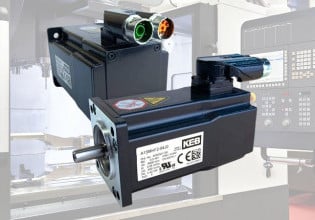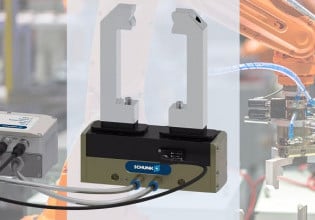Automata, Pioneer in Automation for Life Sciences, Raises $50M in Series B Funding
Automata, a global specialist in life sciences laboratory automation, has raised $50 million in Series B funding to accelerate their work in life sciences laboratory automation.

Automata recently received Series B funding to further the development of solutions for use in nucleic acid testing, colony counting, next-generation sequencing, and others. Image used courtesy of Automata
Automata announced $50 million in funding to create cutting-edge technology in support of life sciences applications such as drug discovery, biotech, microbiology, and diagnostics as they seek to achieve effective workflow automation for laboratories.
Life Sciences
Life sciences refer to the scientific study of life and include a diversity of fields dealing with microorganisms, plants, animals, and humans. And life sciences are not limited to life on earth but also include astrobiology, which focuses on the presence and formation of life in the universe. In addition to theoretical studies, life sciences also have practical applications such as agriculture, environmental health, and kinesiology.
Also considered a life science is pathology, the study of disease and injury. Applications are immunology, virology, biotechnology, and drug discovery -- Automata’s focus for automated workflow development.
A Look at Modern Life Sciences Laboratories
Modern laboratories for the life sciences must be flexible enough to reconfigure with minimum downtime quickly and highly scalable to respond to the increasing demand for new drugs and medical treatments. In addition, as research becomes more global, plans must be outfitted with collaborative tools.
Such laboratories leverage cutting-edge technology such as automated workflows, which simplify complex procedures, optimize productivity, and support the accuracy and repeatability of critical research. In addition, the use of automation removes the element of human error, which can easily result from weariness, distraction, or boredom.
Furthermore, automation and robotics also protect human workers from dangerous bacteria and pathogens, as in the robotic handling of Covid-19 test samples. Life sciences automation is a rapidly expanding field where aspects of biology, medicine, engineering, robotics, and controls are critical.
Automata
Automata Labs, based in London, England, is a leader in developing automation tools for life sciences laboratories in general and biolabs in particular. Their two primary products are the Automata Labs platform and the Eva flexible robotic arm. The automation platform includes proprietary software management and cloud-based management that facilitates the ability of life sciences laboratories to seamlessly scale up automation. Physically, the lab platform is composed of modules with integrated robotics and data-capturing equipment for customized purposes of diagnostics, drug discovery, and more.

Eva is a robotic arm that can handle plate placement, thermocycling, and liquid handling, among other tasks supporting diagnostics and drug discovery. Image used courtesy of Automata
Eva is a compact, 6 DOF robotic arm with a payload capability of 1.25 kg and excellent repeatability within ±0.5mm. Its reach is 600 mm, and it has a compact footprint of only 160x160 mm. Eva supports scalability and flexibility through the Automata Labs platform, optimizing workflows and removing bottlenecks.
Looking to the Immediate Future
Automata plans to use the $50 million investment to further the development of technology aimed at supporting scientists by making it easier to scale automation capacities and shorten their turnaround times.
According to Mostafa ElSayed, the CEO of Automata, “For far too long, scientists and clinicians have been having to work with overly complex lab solutions whereby the equipment and software are disjointed and difficult to orchestrate. Solutions are also often too rigid and inappropriate for labs with small geographic footprints. Our next-generation technology solves this.”
Summary
It will be fascinating to see what innovations and products that Automata’s recently raised funds will be used to support - especially considering the emphasis on pharmaceutical research during the past several years, and the advancements that will surely be made in support of global life science research.






